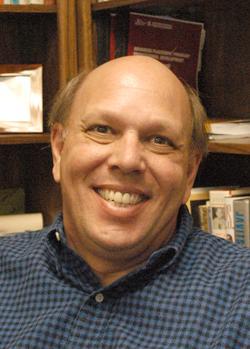James Riddlesperger is a professor of political science. Riddlesperger, who teaches courses in American politics and issues in political science, has been a member of the political science department since 1982.
Q: The inauguration of President Barack Obama will signal a big change because he will be the first black president. Do you think this moment will turn out to mark more than just a change based on race?
A: Of course, every transition marks change. History marches on regardless of who the president is, but it is a dramatic change. Among other things, it’s a change to a new generation of leaders as well. Obama was born in the 1960s, after Kennedy was inaugurated as president. We’ve not had a president of that age or that viewpoint before.
Q: Obama has shown great admiration for Abraham Lincoln and the way he governed. He’s taking the oath of president using the same Bible Lincoln used. Why do you think he aims to emulate Lincoln, and what symbolism does that show?
A: Lincoln is widely seen by historians as the greatest president of all time. He shares with Obama a common heritage of Illinois. Lincoln is the first president to symbolically recognize equal rights for African-Americans. This is almost a full circle inauguration. It was Abraham Lincoln who handed down the Emancipation Proclamation. It’s Barack who is the complete fulfillment of that emancipation.
Q: Obama chose pastor Rick Warren to do the invocation at the Inauguration. He’s fairly conservative, and has said some controversial statements about the gay community, the same community who had a big impact on getting Obama elected. On one instance, he compared homosexuality to pedophilia. He also often spoke in favor of Proposition 8, which banned gay marriage in California. Obama’s decision drew almost universal criticism from the left. Why do you think Warren was chosen, and do you think he made a mistake?
A: This decision was an attempt by President-elect Obama to bring in people with different religious perspectives. A lot has been said about Rick Warren, but less has been said about the moderator of the Disciples of Christ, who is also going to pray during the inauguration. Less has been made of the fact that a gay bishop from the Episcopal Church is also going to pray. The truth is that what Obama is doing in asking Rick Warren to pray is to say, “I’m not going to forget the Evangelical Christians of the United States, and that I’m their president, too.”
Q: About the inauguration process itself, how do you think the process will go? What do you expect his speech to be like?
A: There’s actually a wonderful anecdotal story about his putting together of his speech, that ties him back to Abraham Lincoln. Lincoln’s second inaugural address is widely seen by scholars as one of the three or four most singular state papers we have in the United States. It’s the speech where Lincoln says, “With malice towards none, and charity towards all. Let us do the right which God has given us to see the right.” That is just a brilliant piece of rhetoric, and it reflects in some ways, someone who wants to get beyond conflicts that make the things we’ve been talking about pale in comparison. Here, we’re talking about people who are ideologically liberals complaining about his economic package, and people who are ideologically conservative complaining about the economic package as well. There, we had people shooting and killing each other.
I think Obama thinks of that kind of high-minded rhetoric as a goal for his administration, and he has said to numerous people as he has been drafting his inaugural address, that he wants it to emulate Lincoln. He wants it to be short. He wants it to be to the point. He wants it to express values that he feels comfortable within the American tradition. But, when he looks at Lincoln’s address, he thinks, “How am I ever going to do that?” So that’s what’s going into the preparation and we’ll see if he’s up to the task.

